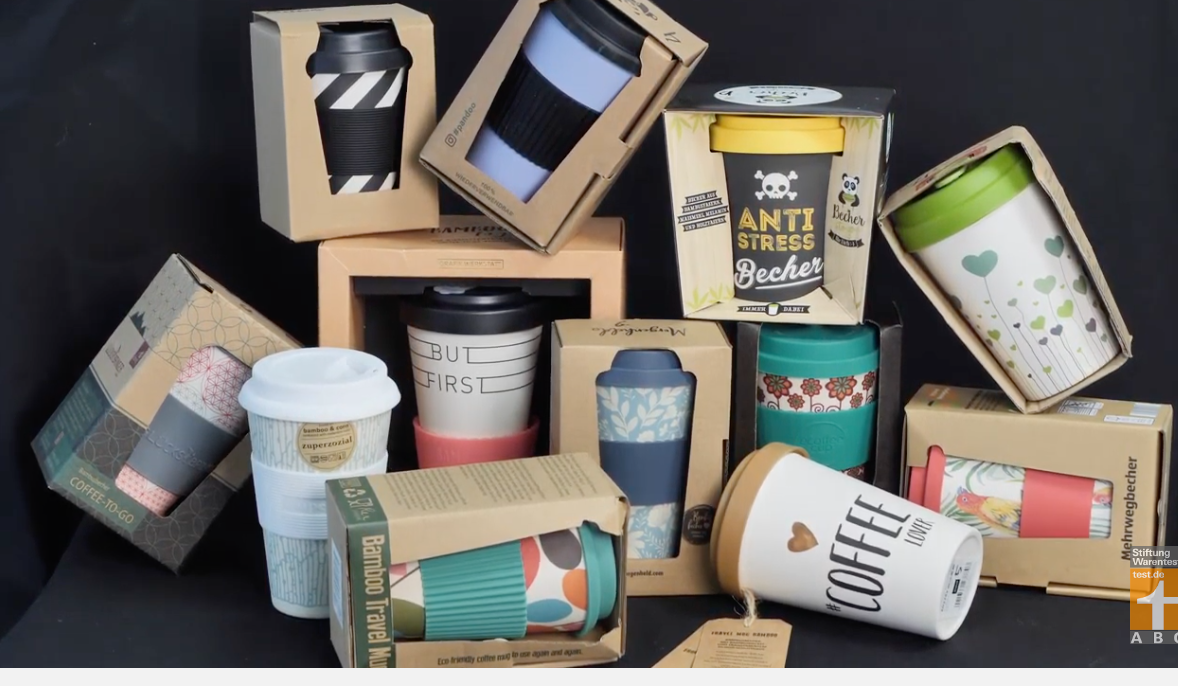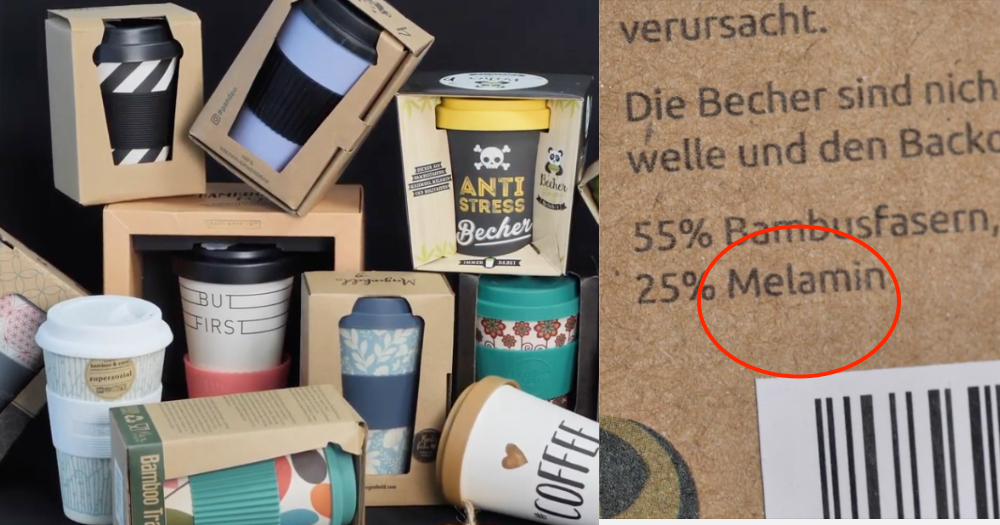When it comes to going green, one will try seeking alternatives to reduce the use of single-use plastics.
Reusable cutlery made of bamboo is a popular choice, ahead those made of plastic.
However, an established German consumer organisation, Stiftung Warentest, discovered that bamboo reusable cups may not be as environmentally-friendly as they seem.
Not 100% bamboo
Stiftung Warentest did a test on 12 bamboo reusable cups, which they bought between March and April 2019.
They found that all 12 cups are not made of 100 per cent bamboo fibre, and some of the cups' packagings provide consumers with the wrong information.
For example, these cups are made from bamboo, but in its powder form, which means it requires an adhesive chemical to hold the powder into the shape of a cup.
The chemical used functions like glue and is a plastic material called melamine resin.
All 12 cups contain this substance.
 Screenshot from Stiftung Warentest/youtube.
Screenshot from Stiftung Warentest/youtube.
Not so easily biodegradable
As such, the cups are not biodegradable since they are not made purely from raw bamboo.
Furthermore, the cups are not recyclable, as one cannot separate the plastic melamine resin and bamboo powder back to their original forms.
Despite so, some brands such as Pandoo still wrote "bamboo is a natural material that does not create non-biodegradable waste" on the packaging.
Health risks
Melamine resin is made from two types of chemicals, namely formaldehyde and melamine.
Melamine can potentially pose a risk to one's health, as it is suspected of causing damage to bladder and kidneys when exposed to high temperatures.
Formaldehyde can cause skin, eyes and respiratory irritation or even cancer.
That said, the cups with melamine resin should be safe to use as long as the temperature of the drink is kept below 70°C.
The test, however, found significant traces of melamine after exposing the cups to hot (at 70°C) and acidic liquid repeatedly.
It suggests that using the cups to hold drinks, such as hot coffee over a prolonged period, can be bad for health.
Ikea cup sent for product retesting
One of the cups tested was from Ikea, and a high amount of melamine was detected.
The company has taken down its bamboo cup Mugg for product retesting in July 2019 in response to the test result.
This should serve as a warning for consumers not to put a bamboo cup in a microwave. However, the test found that some brands do not provide consumers with sufficient warning about this.
One example cited by Stiftung Warentest is the Zuperzozial mug, which omitted such a warning from its packaging.
As going green becomes a popular way of living and more eco-products are made available online, one should definitely be more cautious in purchasing their reusables.
Top photo collage from screengrabs of Stiftung Warentest video
Content that keeps Mothership.sg going
??
This event teaches you how to be your own farmer in the comfort of your own home.
???
Jio all your friends to see the northern lights in this city in Norway!
?⚓
A hipster's dream Europe itinerary that excludes the mainstream cities.
??
Did you know these are the most happening places in Singapore?
If you like what you read, follow us on Facebook, Instagram, Twitter and Telegram to get the latest updates.
